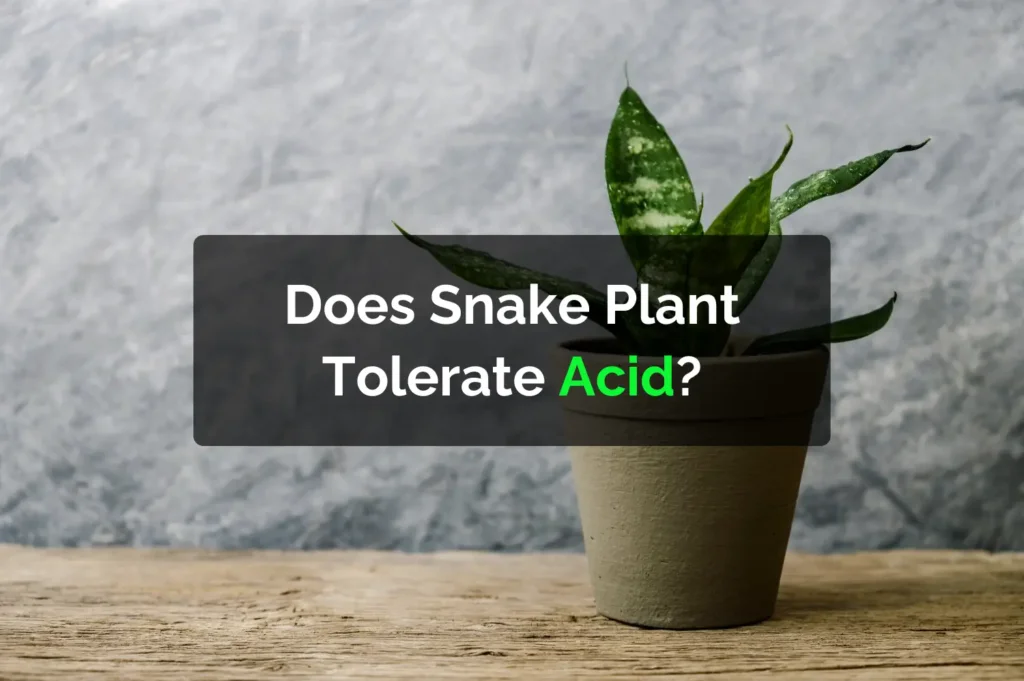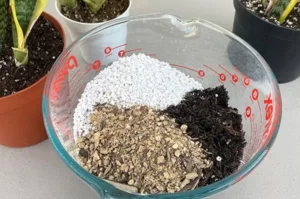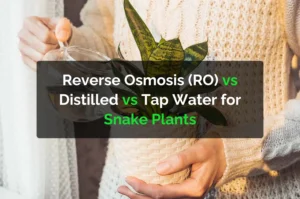Snake plants, scientifically known as Sansevieria, are famous for their low-maintenance nature and striking, upright leaves. They’re one of the best choices for both new and seasoned indoor gardeners. But if you’re aiming to give your snake plant the best care, understanding its soil needs, especially soil acidity, is essential.
So, the big question is: Can a snake plant grow in acidic soil? Let’s explore what soil pH means, how it affects your plant, and whether your snake plant will tolerate an acidic environment.
Understanding Soil pH
Soil pH is a scale that measures how acidic or alkaline the soil is. The scale ranges from 0 to 14:
- pH below 7: Acidic
- pH exactly 7: Neutral
- pH above 7: Alkaline
This pH level influences how well your plant can absorb nutrients from the soil. If the pH is too far in either direction, certain nutrients become unavailable, even if they’re present in the soil. That can negatively affect plant health over time.
What Type of Soil Do Snake Plants Like?
Snake plants prefer soil that drains quickly and retains a loose texture. They do best in slightly acidic to neutral soil, ideally between pH 6.0 and 7.0.
This range allows the plant to take in essential nutrients like nitrogen, potassium, and calcium, which are critical for healthy leaves and root development.
Can Snake Plants Handle Acidic Soil?
Yes, snake plants can tolerate slightly acidic soil, especially within the 6.0–6.5 pH range. However, they don’t do well in highly acidic conditions.
Here’s a breakdown of how different pH levels affect snake plants:
- pH 6.0–6.5: Ideal and safe for growth
- pH 5.5–6.0: Still manageable, but nutrient absorption may begin to slow
- pH below 5.5: Risk of nutrient deficiencies and root problems
Too much acidity interferes with nutrient uptake and can lead to poor growth, even if you’re watering and fertilizing correctly.
Symptoms of Excessively Acidic Soil
If your snake plant is growing in overly acidic soil, it might show some of the following signs:
- Leaves turning yellow or pale
- Leaf tips are becoming brown or crispy
- Sluggish growth
- Roots developing mushy or rotting sections
- Increased sensitivity to pests or disease
These symptoms may also appear due to overwatering or poor light, but checking the soil’s pH can help rule out acidity as a cause.
How to Check Soil pH
Testing the soil’s pH is easier than you might think. Here are a few simple options:
- Soil pH Test Kits: Affordable and easy to use
- Digital pH Meters: Provide fast, accurate readings
- Professional Soil Testing: Available through garden centers or local extension services
It’s a good idea to test your soil every few months, especially if your plant starts acting differently.
How to Fix Soil That’s Too Acidic
If your test results show that the soil is too acidic for your snake plant, don’t worry. You can take the following steps:
1. Add Lime
Agricultural lime (calcium carbonate) is commonly used to raise soil pH. Add small amounts, mix thoroughly, and recheck pH after a few days.
2. Use Compost
Compost not only improves soil structure but also gently buffers pH over time. Well-rotted compost or leaf mold can help balance acidity.
3. Change the Soil
If the soil is too far gone, consider repotting your snake plant in fresh, well-draining potting mix with a balanced pH.
The Ideal Soil Mix for Snake Plants
To give your snake plant the best growing conditions, create a blend that supports proper drainage and holds the right pH. Try this mix:
- 2 parts cactus or succulent potting soil
- 1 part perlite or pumice (to improve drainage)
- 1 part coarse sand or orchid bark (optional for added airflow)
This mix drains fast and maintains a pH that keeps your plant comfortable.
Frequently Asked Questions (FAQs)
Is mildly acidic soil harmful to snake plants?
No. In fact, snake plants thrive in mildly acidic soil (pH 6.0–6.5). Problems only occur when the pH drops below 5.5.
How can I naturally reduce acidity in soil?
You can mix in crushed eggshells, wood ash, or organic compost to slowly neutralize overly acidic soil.
Will acidic water affect my snake plant’s soil?
Yes, if you’re using acidic water (like rainwater or soft water) frequently, it can gradually lower the soil pH. Testing is important.
Can I use general-purpose potting soil?
Yes, but it’s best to mix it with perlite or sand to ensure fast drainage and monitor the pH to keep it within a safe range.
Does acidic soil lead to pest issues?
Sometimes. If the soil is too acidic, the plant weakens and becomes more vulnerable to pests like spider mites and fungus gnats.
Conclusion
Snake plants are sturdy, flexible, and capable of handling a range of conditions. But when it comes to soil pH, they prefer things slightly on the acidic to neutral side. While they can handle mild acidity, extremely acidic soil can lead to nutrient problems, weak roots, and slower growth.
To keep your snake plant thriving, make sure your soil drains well and stays in the pH sweet spot of 6.0 to 7.0. Regular testing and a good-quality soil mix will go a long way in ensuring your snake plant stays green, healthy, and happy.






